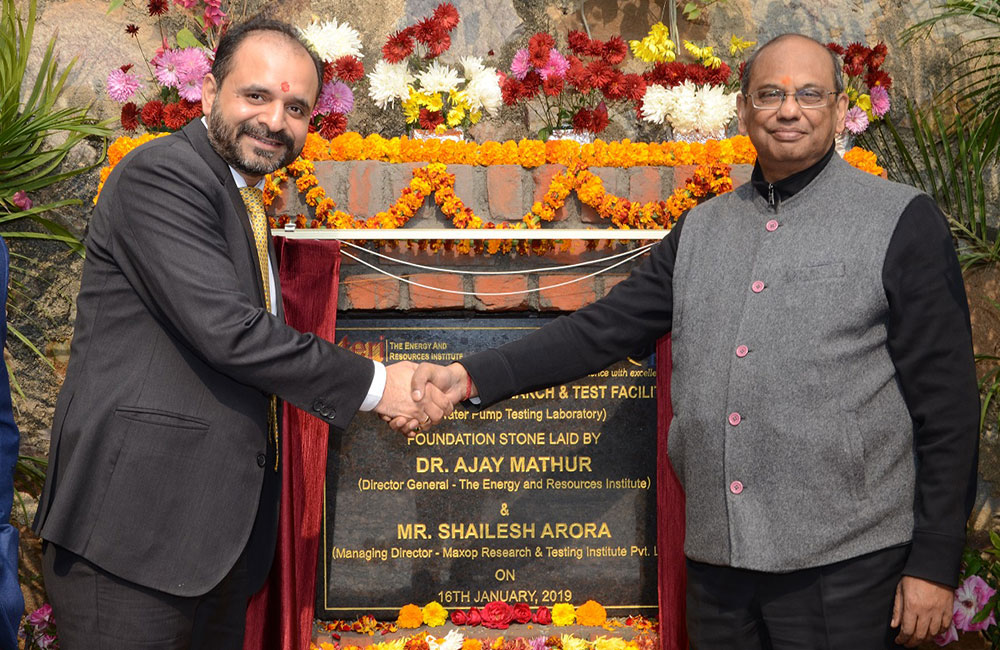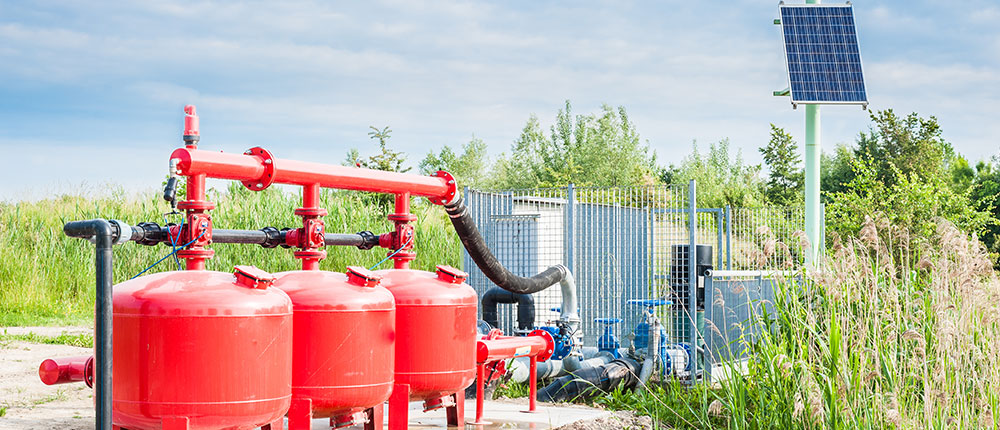TERI laid the foundation stone of a 228 kW solar rooftop system and of a new solar pump testing facility in its campus in Gurugram, Haryana

I am delighted that TERI has expanded its solar footprint. At our Gwal Pahari campus in Gurugram, we laid the foundation stone of a new 228 kW solar rooftop system, and of a new solar pump testing facility on Wednesday, 16th January, 2019. We plan that both these facilities, being carried out in association with partners with best-in-class technological capabilities, would be operational before the end of this financial year, i.e. before 31st March, 2019.
The solar PV power generation facility would add to our current 60 kW solar PV capacity in Gwal Pahari, and would substantially reduce the diesel consumption which is utilised for electricity generation when supply from the Haryana grid fails. These new solar panels would be installed on the roofs of existing buildings, as well as on top of a new covered car parking area. This solar PV system would be installed and operated by Fourth Partner Energy Pvt. Ltd., who will sell us the electricity at Rs.5.29 per kWh; we pay the Haryana grid Rs 8.65 per kWh, and our diesel generation costs us over Rs 20 per kWh. Fourth Partner Energy would invest in the system, as well as in the setting up of covered parking lot. They would provide us with solar electricity, which would replace some of the electricity that we buy from Haryana grid or is generated from the diesel generating sets.
This would be an economic benefit for us: more importantly, it would be a demonstration of the benefits of solar technology and of the RESCO (Renewable Energy Service Company) business model for application to all commercial buildings in Haryana, Delhi, and the NCR, providing a to-do example of how to reduce pollution as well. It would also provide us with the ability to test and validate software for the management of grid-interactive microgrids. Such microgrids have become more important and relevant as we move towards a future in which 100% of buildings in India are connected to the grid – though reliable electricity supply to the grid-connected buildings remains a challenge. This provides an opportunity for such grid-connected microgrids to enhance electric supply reliability.

The second facility that we inaugurated is the solar pump testing facility. It would have nine test beds for assessing the performance of solar pumps. This application of solar pump is becoming ever more important as solar prices tumble; now solar pumps provide the opportunity to state governments to end the perpetual-subsidy regime for agricultural power with a one-time subsidy for solar pumps.
This is creating an increasing demand for solar pumps, and an increasing number of solar pump manufacturers and models are entering the market every year. These solar pumps have to meet minimum standards established by the Bureau of Indian Standards (BIS) and the Ministry of New and Renewable Energy (MNRE), and consequently need access to testing facilities where their performance can be assessed during development, and then certified once the model design and manufacturing is finalised.
The solar pump testing facility is being set up in partnership with Maxop Research & Testing Institute Pvt. Ltd. The solar PV pump testing facility seeks to meet the demand for pump performance testing, and enhances the value and attractiveness of TERI’s collaboration with PV pump manufacturers in the development of solar PV pumps and auxiliary facilities. Maxop is a leading organisation in testing and verification, and our partnership with them provides us the rigour and discipline required to maintain a credible testing facility. In addition, our proximity to the National Institute of Solar Energy (NISE), the mother organisation for testing and certification of solar devices and systems, provides us an opportunity to enhance interaction and proactively work with NISE on testing and certification requirements.
Together, these two facilities represent our strengthened commitment to facilitate India’s move to a solar economy; a goal that TERI has had ever since it was founded. These facilities, and the partnerships underlying the facilities, provide us the opportunity to guide, influence, and support the solar transition in India.
